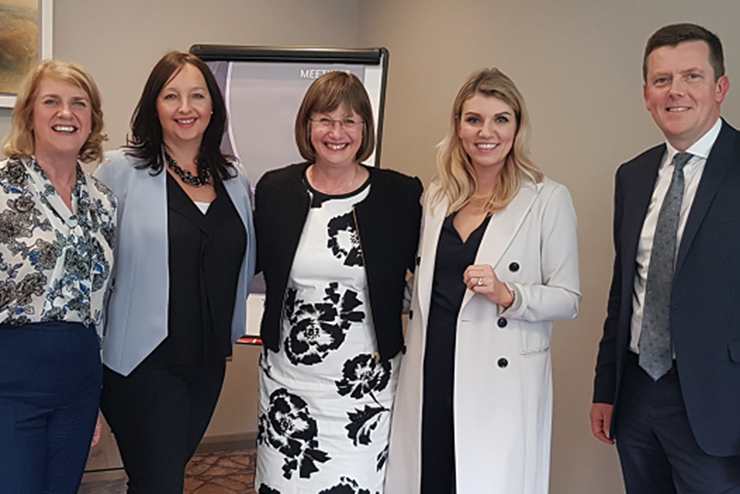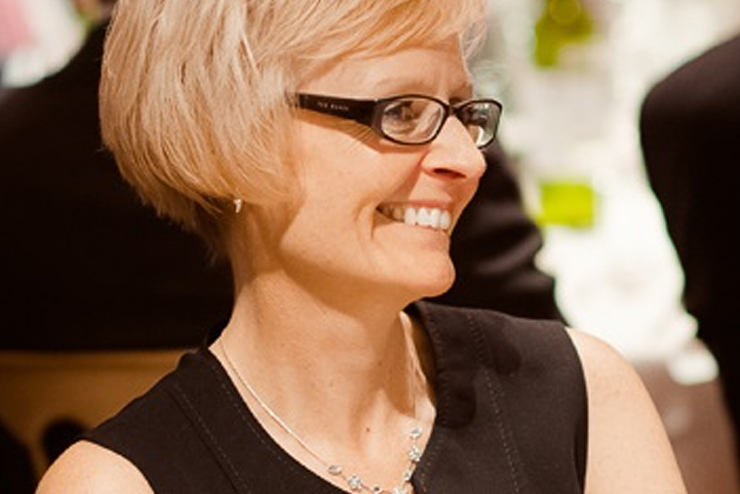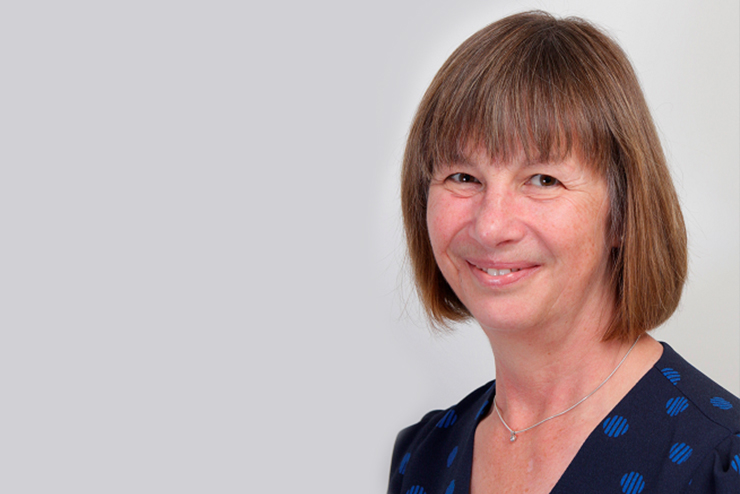WomenIn CILA
The Women in CILA group was formed in 2015 and was inspired by the appointment of Candy Holland as the first female President of the CILA. The group takes positive action to address the current gender imbalance in CILA qualification progression. Their work includes researching barriers to female progression, providing role models in loss adjusting, creating networking opportunities and encouraging female participation in Institute actvities.
Chair
Michelle Haynes
Aviva
Members
Kim Alcock
McLarens
Layal Alharahsha
Sedgwick International UK
Sharon Brightwell
Sedgwick International UK
Jane Dando
Charles Taylor Adjusting
Charlotte Duncalf
Sedgwick International UK
Helena Evans
Criterion
Julie-anne Headington
Channel Island Adjusters Ltd
Ann Hewlett
Gallagher
Victoria Jewell
McLarens
Jacinta Jones
Crawford & Company
Joyce Redfern
Global Risk Solutions
Cathy Scott
Crawford & Company
Sue Taylor
Sue Taylor Ltd
Alison Unwin
Sedgwick International UK
Latest updates
What are we up to?
Female role models and participation in Institute activities
We welcome and encourage women to get involved in Institute activities. An increasing number of female members participate in our Special Interest Group committees, engaging in debate about issues that impact claims and sharing their knowledge and experience. If you would like to become a CILA volunteer and take an active role in Institute activities please contact info@cila.co.uk.
Mentoring and networking
We introduced informal monthly coffee sessions for the WIC group and hope to host workshops and other interactive activities in the not too distant future. We were delighted with the launch of the CILA e-mentoring platform, developed by the Future Focus group, and would encourage female members to sign up, either as a mentee or mentor, and take advantage of this opportunity to build your professional network at https://cila.onpld.com/
Female progression and careers in loss adjusting
The WIC group have also been working behind the scenes:
- Exploring ways in which we can attract female talent into our profession and then support those women to remain within loss adjusting throughout the various stages of their lives and careers.
- Conducting research into the causes of gender imbalance and looking at how we can help to drive change within loss adjusting firms.
- Inviting guest speakers from other organisations to participate in our committee meetings, to learn from gender diversity strategies and training that is available in the wider Insurance market.
- Working with our Future Focus group to inspire younger members to obtain their professional qualifications and reach their career goals.
Launch of local Women in CILA groups

Inspired by WIC activities in London, our female members in Scotland and Northern Ireland have launched their own WIC groups.
Trish Hume, Claims Manager at Bruce Stevenson Insurance Brokers, would like to create a support network for those who are working towards CILA qualifications and, with the help of her contacts in the Scotland market, co-ordinated the first Women in CILA Scotland event. The event included a moving account from Nick Smith, Diversity Officer at the Insurance and Actuarial Society of Glasgow, who shared his experiences and aspirations for a diverse insurance profession in Scotland.
Cathy Scott, a Chartered member and Technical Manager (Property) NI at Crawford & Company, is also an advocate of helping local members to progress and succeed in their CILA qualifications. Cathy invited Alison Cassidy of BLM Law in Belfast to discuss gender diversity in the legal profession and, with the support of local members and employers, developed an afternoon workshop for members to hear from Alison and explore issues associated with female progression.
A special thank you to WIC founding members, Candy Holland and Terry Adams, who attended both events and shared the story of how the Women in CILA group was first established, what it has achieved and how it can be incorporated within the workplace.
What I have learnt by Kim Alcock LLM ACII FCILA AlnstLM

Kim Alcock, LLM ACII FCILA AInstLM has spent over 20 years working within loss adjusting and claims management. She is currently employed by McLarens as Head of UK Casualty & TPA Operations.
What I learned at school…
Instilling pupils with the belief to succeed was low on the agenda at my school. “Amounting to nothing” was a common theme. At least it was applied to everyone, so I didn’t leave school thinking my gender would hold me back. I used the negativity to develop a gritty determination which has served me quite well over the years.
There are very few substitutes for hard work…
We can all pick up some handy time saving hacks, but generally, if you want to succeed, you need to have drive, commitment and focus. That doesn’t mean putting in more hours than everyone else, all of the time. Of course, there are periods when you do need to work overtime or spend your free time studying. My career was certainly helped by gaining my professional qualifications at an early stage. They gave me the solid technical grounding to act decisively and with confidence.
But it’s also important to have balance…
Don’t be ‘a glum’ – find time for friends, family and pursuing hobbies and interests that you enjoy!
I never leave home without a warm coat and comfy shoes…
A definite must with our UK weather, especially if you are in a field role. On a recent team building exercise, I learned that they are also essential for desert survival!
Loss adjusting has proved to be a varied and interesting career choice…
I’ve been lucky enough to work in a diverse range of technical, operational and client facing roles over the years, which have involved plenty of new people, places and challenges.
In my early years, I enjoyed the excitement of managing major losses and have been lucky enough to be involved in some interesting and high profile cases that made national headlines.
Loss adjusting has also been flexible enough to accommodate my other role, as mum to 2 boys. I opted for operational management when they were younger, as the hours were more regular.
As someone with a low boredom threshold, the variety of roles, on offer, has certainly suited me.
When my boys complain that something is ‘boring’ I tell them that learning to deal with boredom is a life skill, but despite the varied nature of my work, it’s definitely something I’m still working on.
If you want to succeed – make sure your expectations are ambitious but realistic…
Setting and managing expectations is something that I have always been comfortable with at work. As a parent, it’s trickier. What I’ve learned is that if you’re too tired to get all of the ironing finished on Sunday night; so what? Put your feet up. Boys aren’t fazed by crumpled uniforms! And if you forget that packed lunch; don’t worry. Kids are quite capable of knocking up a sandwich!
When it comes to the really important choices between work and parenting, instinctively, I think us working mums get it right most of the time. When I don’t, I try to just put it behind me.
Have confidence, take ownership and don’t waste time stressing about what others think…
I speak my mind and share my opinions. I try to respect others and not to offend. I understand the benefits of a well timed apology. But I think it’s damaging to be constantly worrying about what others think or trying to pre-empt their reactions. It just creates indecision and self-doubt.
Ultimately, we all have very little power to influence the minds of others.
I was very lucky to have a good mentor in my early years in Loss adjusting…
He once suggested that he had forgotten more knowledge in his career than I had acquired. Now I’m at that age, I’d like to think that I’m selectively discarding those facts that are no longer of use to me. (But, can anyone remember where I left my reading glasses?) I’ve also taken on some mentoring myself. It’s great to help and support the next generation of claims professionals and it gives me a fresh perspective on things. I’ve certainly become more open to views and interests that my younger self would never have entertained. I’d also like to think I’ve become a little more patient over the years (raised eyebrows from husband suggest there’s still some way to go with that one!).
Building the career you want
Building the Career you want
In 2016 the Women in CILA group hosted an interactive seminar entitled Building the Career you want. The feedback from this event was so positive that we asked the speaker, Katherine Bryant, to summarise her advice.
Know the keys to success
Building the career you want starts with having clarity on what success means to you. Success is utterly subjective and means different things to different people. There are however 6 things which are keys to success and they apply whatever your definition of success is:
1. Clarity – knowing who you are, where you want to be and what you want
2. Authentic confidence – being your true self with confidence
3. Strong personal brand – your reputation is everything, especially in a close-knit market like insurance
4. The ability to influence and lead – whatever level you are or aspire to, whether a manager, director or board level role you need to be able to influence and lead
5. Powerful network – internal and external to your organisation, relationships are essential to success
6. Balance – the ability to create the life you want with balance

Learn to self promote
The one thing that countless senior women say is that the most valuable thing they have learnt in their careers is the ability to self promote. This is backed up by research showing how self promotion has the biggest impact on career success and something men are often much better at doing. Self promotion is not something that comes naturally to us for three main reasons,
1) we don’t feel we should have to do it, our work should be judged on merit alone
2) we feel we could be ostracised, nobody likes a bragger!
3) it feels icky and uncomfortable
So, we can either choose to work harder than ever before, burn the night oil and become increasingly bitter about still not being recognised or, we can bite the bullet and start to talk about our achievements.
Here are a few things you can start doing to promote yourself:
• Sharing your story – think about how to talk about your successes, make a note of your achievements to not only share with your boss on reviews but to share with others.
• Building relationships – your network is key and the second most important factor in career success. Surround yourself with good people, internal and external, to share your stories with.
• Shining the spotlight on others – to help your peers and team members (which by the way always reflects well on you!)
• Call it out and challenge bias – women are often judged more harshly for certain behaviours than men so when you hear a woman called “aggressive”, “bossy,” or “hysterical” request a specific example of what she did and then ask “would you have the same reaction if a man did the same thing?” In many cases, the answer will be no – the behaviour would be seen as “assertive”, “directive” or “angry” which have very different connotations. The more we bring bias to the fore, the quicker it can be dispelled.
• Sponsor – you do not need to be senior to be a sponsor. Sponsorship is simply advocating for someone.
For more tips and ideas click on the link for a free copy of my non-icky self-promotion toolkit. Start doing these things and be the change you want to see.
http://www.theprogresspartnership.com/non-icky-self-promotion-toolkit-2/

The Progress Partnership, works exclusively with risk and insurance professionals. We help brokers, insurers, loss adjusters and service providers to build and lead high-performing teams – ensuring the success and longevity of their business.
We specialise in providing tailored leadership, management and personal development training solutions based on our deep market insight & the most up to date research and psychology. What sets us apart is our unique approach based on extensive market knowledge and experience of working in the industry.
We help you achieve success with:
• A portfolio of fast paced 90 minute, ½ day and 1 day workshops ensuring engagement & that fit easily into the working day
• High energy keynote motivational talks (1 – 1.5hrs) perfect for leadership away days or conferences
• The Insurance Breakfast Club – a unique leadership development group for insurance professionals
• In person or telephone coaching sessions with expert coaches
Visit our website at www.theprogresspartnership.com
Katherine Bryant, Founder of the Progress Partnership has a career spanning over two decades in the insurance industry. A passionate advocate for diversity and inclusion, Katherine speaks regularly at industry events and is a trustee of Dress for Success, a charity helping women return to the workplace.
First female President of the CILA, Candy Holland ACII ACILA

When I was CILA President, I realised how few qualified and senior women there are in loss adjusting. Only 5% of Chartered Loss Adjusters are female.
I believe we need to look at what the barriers are to women furthering their careers in our profession, what’s stopping more women being in senior positions and how we can better support women through all stages of their working lives.
Workplace culture
Although I don’t feel that being a woman has limited my career progression, it is true to say that as a woman I have sometimes felt excluded in different ways and at various times on the journey.
For example, I am often the only woman in meetings and because it has been this way throughout my career it is not daunting and is quite normal to me. However there have been occasions when I felt I had a very different viewpoint to my male colleagues and either didn’t have the confidence to voice my views or simply couldn’t get a word in edgeways!
Social and marketing events typically involved sport and pubs. I remember a female senior sales colleague, in about 2000, exploding one day with frustration about how much business was done in the pub after working hours and how career limiting that was for her.
On many occasions I didn’t feel I could be myself – I had to be considered as one of the boys to be accepted and fit in. I was pretending to be one of them rather than being myself.
I didn’t have anyone to share this with at the time but things are changing and improving and now this is recognised as a common issue. I certainly think sharing experiences can help women deal with such challenges.
Work life balance
It’s not easy having children and maintaining your career but a lot has changed since I became a mum. When I had young children I barely talked about them because I was worried that people would judge me as unprofessional.
In those days, only 20 years ago, men didn’t leave early to pick up their kids from school – how things have changed! Parents seeking a good work life balance is acceptable now. I have heard the view that flexible working and loss adjusting are not compatible but that is absolutely not the case.
So here are a few messages that I would convey to anyone who wishes to progress their career in loss adjusting:
- Supporters are really important, recognise them and when you find yours, keep them, you will have them for life.
- The importance of good networking, establishing connections and making the most of them cannot be underestimated. Make the time to keep in touch with people and your efforts will be well rewarded both personally and professionally.
- Visibility – contribute to a project that will get you noticed. Ask questions, show you are interested, go outside of your role and look for something for you to make your mark.
- Authenticity – a word that’s used a lot and is so important. Be your own person, be true to yourself and don’t compromise your principles. Speak plainly and honestly, stand up for what you believe in.
- Find what you enjoy and are interested in – then go for it! Don’t get stuck in a rut and accept that you can’t progress. Assume you can. Express an interest in something and ask what you will need to do to get there.
- Professionalism and qualifications – take exams, show you have something different, that you are committed to progressing. Everyone’s talking about the skills gap – where is the next generation going to come from? Show that you can plug that gap.
- Ask for help and advice from someone you respect. They will be delighted to help and it may be the start of a great mentoring partnership.
And last but definitely not least:
Confidence and self-belief – I never expected different treatment as a woman and so I didn’t even think about it. I just assumed I would do my job and always did my best. So be your own person and be confident.
